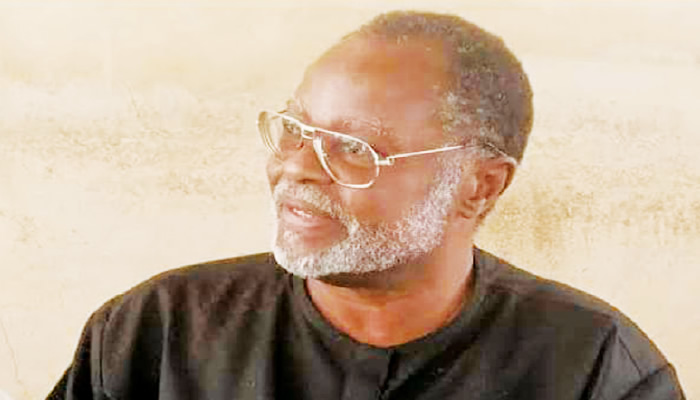Udenta Udenta, a founding member of the Alliance for Democracy, has launched a scathing critique of the All Progressives Congress (APC), characterizing it as a precarious and unsustainable political entity. He argues that the APC, which he describes as a “structure of darkness,” has systematically weaponized state institutions, including the Independent National Electoral Commission (INEC) and the judiciary, to perpetuate its hold on power. This manipulation, he alleges, has enabled the APC to legitimize electoral malpractices and undermine the democratic process. Udenta contends that the APC’s actions have precipitated a multifaceted crisis in Nigeria, encompassing economic collapse, escalating insecurity, societal fragmentation, and a profound erosion of governmental legitimacy.
Udenta’s pronouncements carry a sense of urgency, particularly in light of the approaching 2027 general elections. He views this election as a pivotal moment for Nigeria, a potential turning point that could redefine the nation’s political trajectory. He emphasizes the potential impact of former President Goodluck Jonathan’s participation in the 2027 race, suggesting that Jonathan’s candidacy could significantly amplify the existing apprehension within the APC. Udenta underscores the critical need for a unified opposition front to effectively counter the APC’s dominance and prevent further deterioration of the country. He specifically calls upon the People’s Democratic Party (PDP) and the Labour Party to forge a strategic alliance, warning that a failure to consolidate their forces could empower the APC to inflict irreparable damage on Nigeria.
Central to Udenta’s argument is the assertion that the APC’s reign has been marked by a comprehensive failure of governance. He accuses the ruling party of exacerbating Nigeria’s economic woes, fueling insecurity, and deepening societal divisions. Udenta paints a picture of a nation teetering on the brink, grappling with widespread disillusionment among its citizens. He believes that Nigerians are yearning for credible alternatives and are poised to decisively reject the APC if presented with viable options in the upcoming election. He portrays the 2027 election as a battle for the soul of Nigeria, a contest that transcends mere political maneuvering and delves into the very essence of the nation’s identity.
Udenta’s criticism extends to the internal dynamics of the APC, particularly regarding President Tinubu’s purported second-term ambitions. He condemns the premature discussions surrounding Tinubu’s potential running mate for the 2027 election, viewing it as a blatant disrespect towards Vice President Kashim Shettima. He interprets the endorsements of Tinubu for a second term by APC governors and other party stalwarts, coupled with their silence on Shettima’s future role, as a calculated strategy within the party. This, he suggests, reveals a premeditated plan to sideline Shettima and potentially replace him on the ticket.
Udenta’s pronouncements, though stark, reflect a growing sentiment of discontent and apprehension within Nigerian political circles. His concerns about the APC’s grip on power, the alleged manipulation of state institutions, and the potential for further societal fragmentation resonate with many observers. His call for a unified opposition underscores the perceived urgency of the situation and the need for a concerted effort to challenge the ruling party’s dominance.
The 2027 general elections, as Udenta suggests, are poised to be a defining moment for Nigeria. The outcome will not only determine the country’s political leadership but also shape its future trajectory. The potential participation of figures like Goodluck Jonathan adds another layer of complexity to the already intricate political landscape. The coming months will undoubtedly witness intensified political maneuvering, strategic alliances, and heightened public discourse as Nigeria prepares for this crucial electoral contest. Udenta’s warnings serve as a stark reminder of the stakes involved and the potential consequences of inaction. They underscore the need for vigilance, informed engagement, and a collective commitment to safeguarding the democratic process and ensuring a stable and prosperous future for Nigeria.














